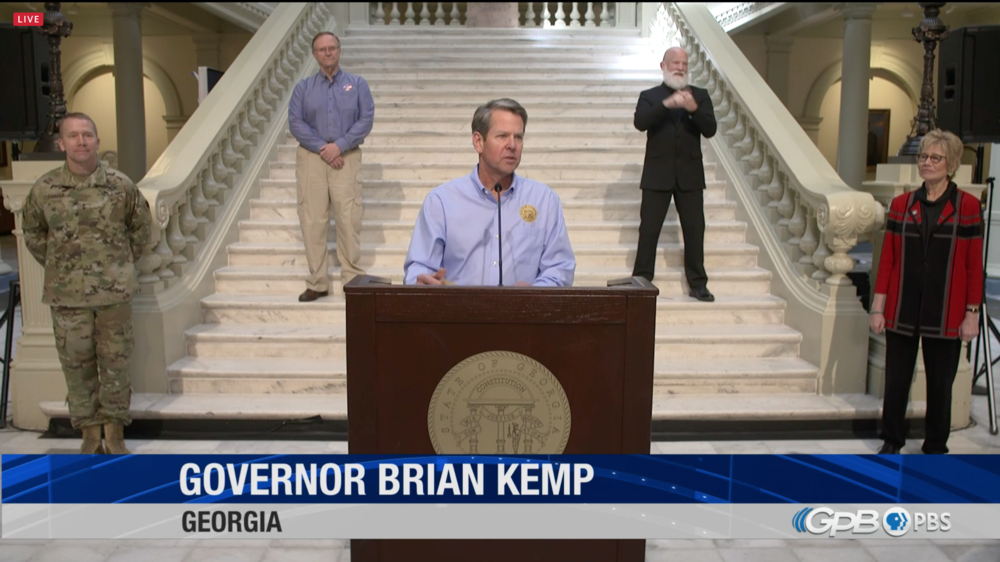Section Branding
Header Content
Georgia's Stay-At-Home Order Will Extend Through April 30
Primary Content
Gov. Brian Kemp extended Georgia's stay-home order through April 30 as the state continues to see a rapid increase in COVID-19 testing, cases and deaths.
"While I'm encouraged by some of the recent data, we still have incredible challenges before us," a somber Kemp said in a Wednesday press conference.
All provisions of the previous executive order will remain in place, which means bars, nightclubs, gyms and other places where people gather will remain close, and restaurants will still be limited to delivery, take-out or curbside pickup.
MORE: What Does Georgia’s Coronavirus Shelter-In-Place Mean?
Churches and funeral services can’t have more than 10 people unless they can stay 6 feet away from everyone at all times.
The stay-at-home order previously lasted until April 13, when the state's original public health emergency ended.
Kemp also extended that emergency for another month, until May 13.
“To ensure the health and well-being of Georgians, I will extend the public health state of emergency through May 13, 2020,” Kemp said in a statement. “This measure will allow us to continue to deploy resources to communities in need, lend support to frontline medical providers, and keep preparing as we brace for potential patient surge in our healthcare facilities. We deeply appreciate the hard work of Georgians who are sheltering in place, using social distancing, and helping us flatten the curve. We are in this fight together.”
When the original public health emergency was signed, there were 66 confirmed cases of COVID-19 and one death. Now, the state has nearly 10,000 cases and more than 350 deaths across virtually every county.
Kemp also announced an order that will suspend short-term vacation rentals.
"I want to thank everyone who has followed these directives, certainly applaud your patience," he said. "I have also heard the concerns of many hardworking Georgians across our state, including local elected officials who fear that our state is becoming a vacation destination."
This order does not include hotels, motels or campgrounds.
A third executive order enacts more aggressive policies to curb the spread of coronavirus in the state's long-term care facilities.
Among other things, the facilities must adopt infectious disease transfer protocols with nearby hospitals, visitors and non-essential personnel are strictly prohibited except in compassionate care situations.
All group activities are also canceled, and in-room dining must be provided, and Kemp said if possible, residents with symptoms of respiratory infection need to be placed together.
Kemp said towards the end of the lengthy press conference that while state officials were still looking at data trends now that people have been staying home, Georgians need to continue to follow the order and minimize the risk of spreading COVID-19.
"I don't want Georgians to take their foot off the gas," he said. "There's no question what we're doing is working. You can just drive around and see that there are less people out, you don't see people doing large gatherings."
This story will be updated as more information becomes available.


